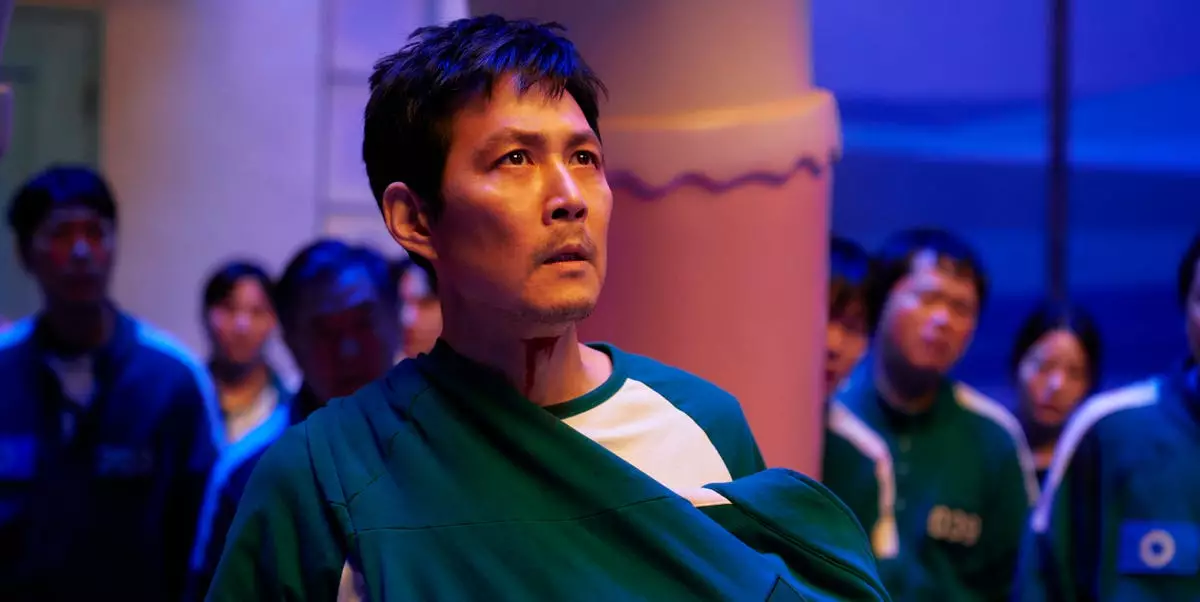Squid Game’s finale stands as a profound commentary on societal decay and human morality, challenging viewers to reevaluate their perceptions of heroism and sacrifice. While the series is notorious for its brutal imagery and relentless tension, its ultimate message transcends mere violence. It dares to suggest that amid chaos, genuine heroism emerges through selflessness—an act exemplified by Gi-hun’s final sacrifice. This deliberate choice pushes the narrative into a realm where morality is not dictated by traditional notions of victory and defeat but by the quiet strength of prioritizing the future over oneself. The finale’s refusal to deliver a conventionally “happy ending” underscores Hwang Dong-hyuk’s conviction that our world is fundamentally flawed and calls for collective introspection about social responsibility.
From Optimism to Realism: The Creator’s Intent
Initially, Hwang envisaged a more optimistic conclusion—Gi-hun making it out alive, reuniting with his daughter in the United States. Such an ending would have offered viewers a light of hope, a reminder that goodness can persevere against overwhelming odds. However, as the series developed, Hwang’s perspective shifted dramatically. Reflecting on the worsening socio-political climate—rampant inequality, environmental crises, and geopolitical tensions—he realized that the real world needs acknowledgment of its imperfections. The decision to end with Gi-hun’s sacrifice was not just narrative choice but a moral stance. It embodies the message that true change begins with individual and collective willingness to make personal sacrifices for the greater good. The finale becomes a mirror for viewers, urging a recognition that societal transformation may require uncomfortable, even painful, acts.
The Symbolism of Sacrifice in the Closing Scene
Gi-hun’s selfless act is the centerpiece of this narrative. Facing the horrifying reality that survival often entails moral compromise, he chooses to die so that a vulnerable child can escape with a fighting chance. The innocence of the newborn, representing hope and future generations, becomes a powerful symbol of what we Stand to lose if we continue down the path of greed and selfishness. The precise choice to feature an infant—completely immune to the corruption and brutality of the game—emphasizes the importance of nurturing hope for those who are most vulnerable. When the Front Man visits Gi-hun’s daughter to hand over her father’s belongings, it reinforces a bittersweet truth: life is often marked by loss, but also by resilience and subtle acts of kindness that ripple beyond the immediate horizon.
Challenging Audience Expectations While Conveying Urgency
Hwang’s decision to move away from a traditional “victory” storyline demonstrates a willingness to challenge viewers’ expectations. Articulating this, he wanted the ending to serve as a wake-up call—an urgent plea for societal introspection. The contrast between the initial white-picket-fence vision and the gritty reality of Gi-hun’s sacrifice emphasizes the gravity of our current moment. It’s a reminder that, if we desire meaningful change, sometimes the most profound act is to relinquish personal salvation in favor of future generations. The finale’s somber tone, therefore, is a conscious departure from escapism, insisting that true heroism often involves suffering and strategic surrender.
Impact and Reflection
While the finale has stirred debate among fans—some longing for a hopeful resolution—the broader cultural resonance cannot be ignored. Squid Game transcends its genre, wielding its narrative as an instrument for social critique. It forces us to confront uncomfortable truths about our values and priorities. By reframing its conclusion around sacrifice rather than victory, the series elevates its message from mere entertainment to moral philosophy. It demands that we reflect on our responsibilities—individually and collectively—to forge a future where justice, empathy, and compassion are not just ideals but actionable principles. The power of Squid Game’s ending lies not in its bleakness, but in its unwavering insistence that hope is ultimately rooted in sacrifice.


Leave a Reply